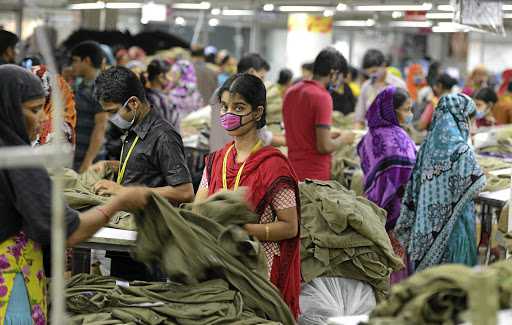Pay more for your clothes, Bangladeshis tell fashion brands

Garment workers in Bangladesh have rejected an increase in the minimum wage, saying it is still not enough to live on and urging global brands to pay more for the clothes they buy, unions said on Monday.
Bangladesh raised the minimum wage by more than 50 percent last week to 8,000 taka (R1,428) a month - the first increase since 2013, when a string of fatal factory accidents thrust poor working conditions and pay into the spotlight.
"The new wages announced are not enough for workers to live a decent life," said Mohd. Raisul Islam Khan, field coordinator for the IndustriAll Global Union. "Workers were demanding 16,000 takas (R2,857). They are not happy and many organisations are talking about an indefinite strike if the wages are not reconsidered," he said.
Bangladesh is the world's second-largest garment producer after China and its $30bn (R194bn) industry employs an estimated four million people, 80 percent of them women.
The workers are among the worst-paid in the world, a compensation report released by the Fair Labour Association (FLA) in April stated.
Overtime income accounts for 20 percent of their salary, it said, and half the workers put in more than 60 hours a week despite the impact on their health.
"The decision to raise wages for garment workers in Bangladesh is an encouraging – though long overdue – step in the right direction," Sharon Waxman of the FLA said in a statement, adding that the fight for fair wages would however continue.
The unions also say production targets should not be increased after the wage hike, which many small and medium factory owners argue is a "burden" that may lead to the closure of units.
"After the last pay hike in 2013, we realised that many factories increased production targets for workers and the work pressure built up tremendously," said Nahidul Hasan Nayan, general secretary of the Sommilito Garments Sramik Federation, which supports unions.
"Workers came to us and said their pay had gone up but they did not even have a minute to drink water or use the restroom during their shift."
Khan said the situation had improved since the collapse of the Rana Plaza complex in 2013 killed 1,136 garment workers, but fashion brands had a duty to do more.
"Brands have to step up and pay more for the clothes they are buying," he said.
"After the Rana Plaza disaster, the Bangladeshi garment and retail manufacturing industry has made big efforts to meet international standards. Now international brands have to show their commitment to the workers."
Source: https://www.timeslive.co.za